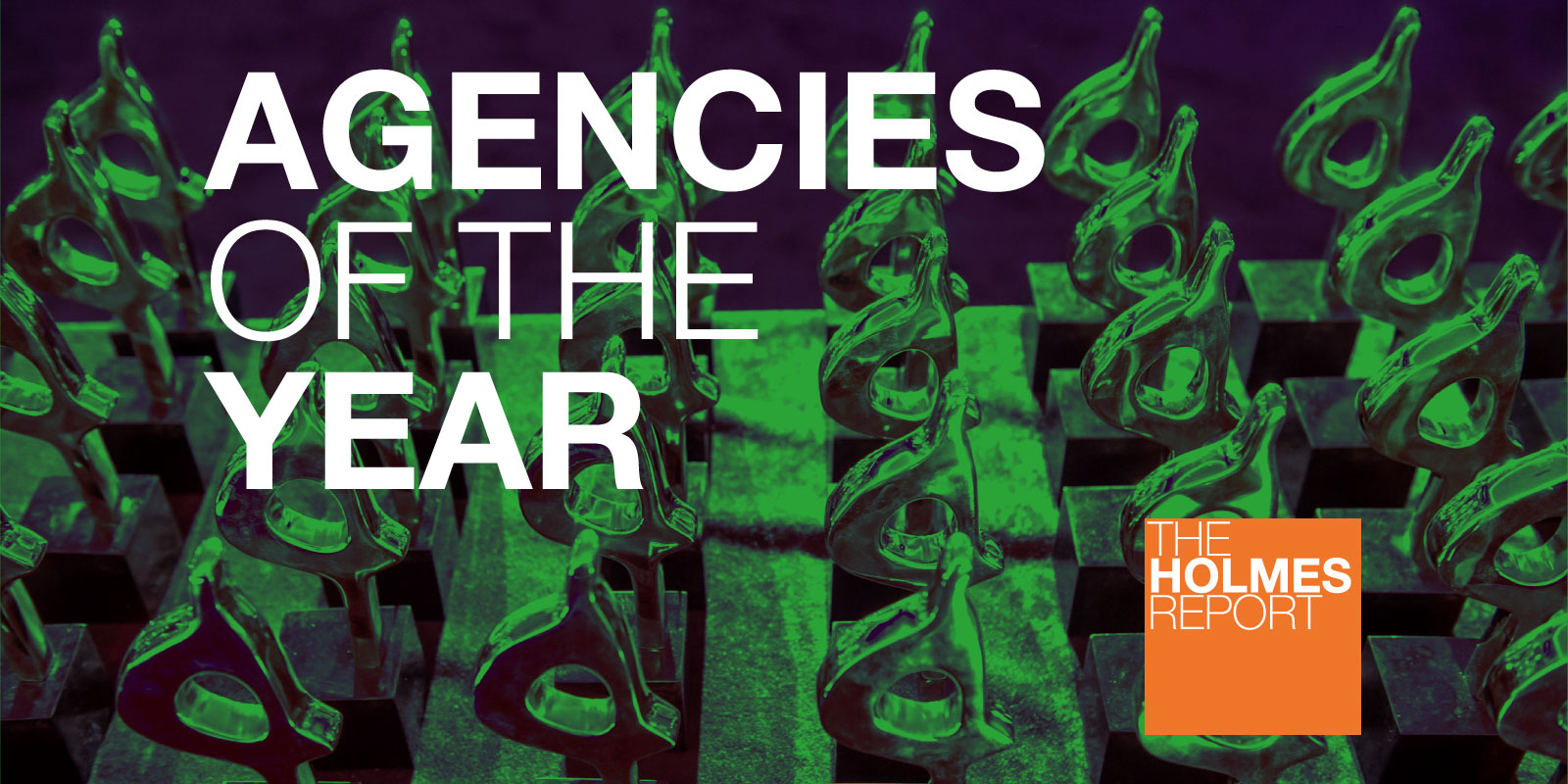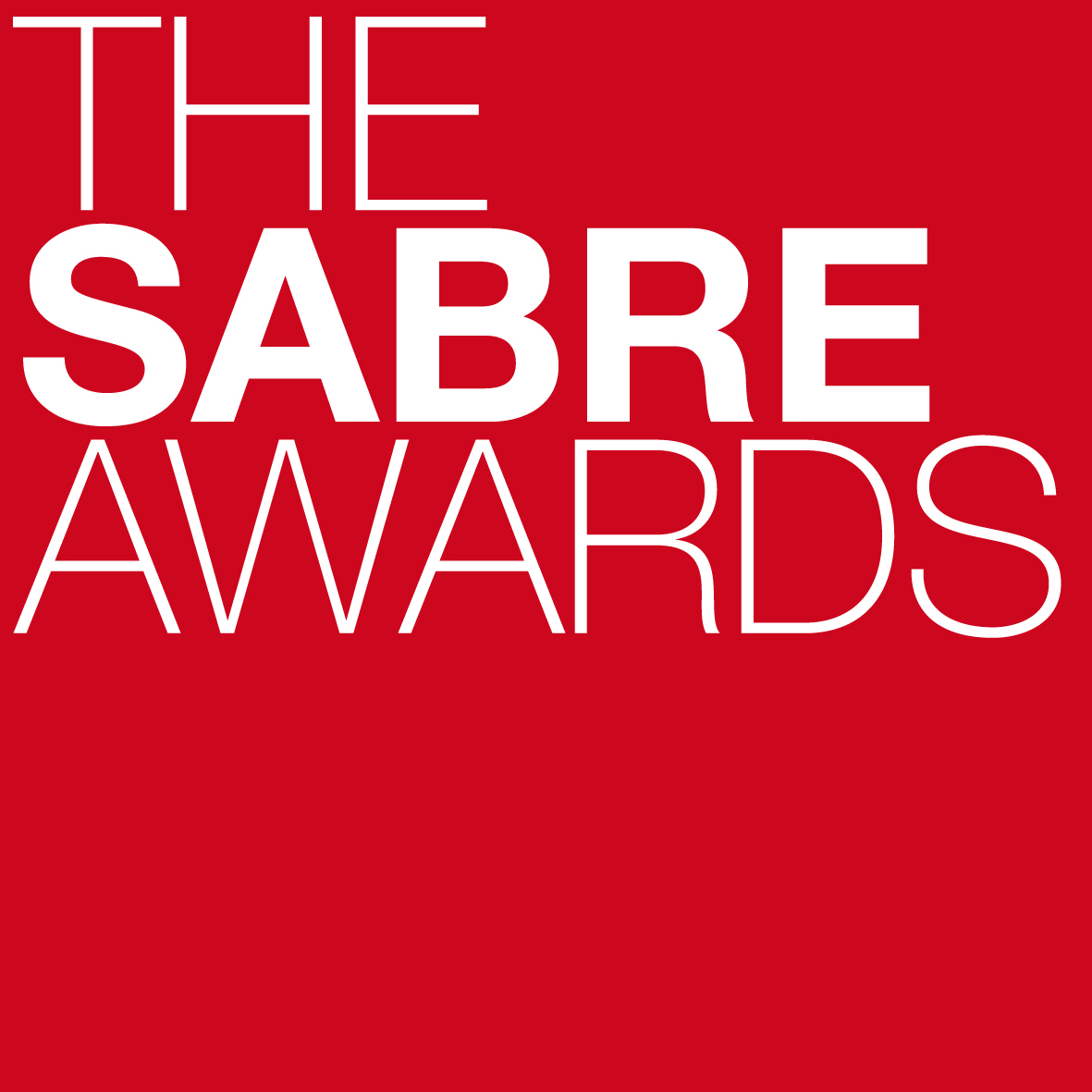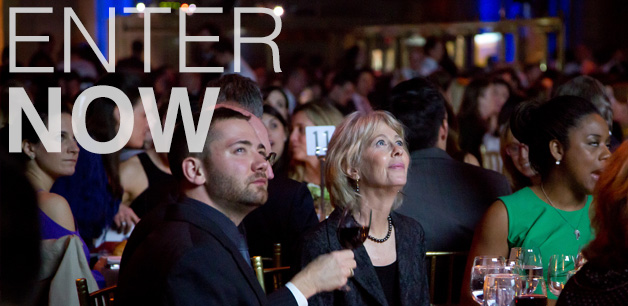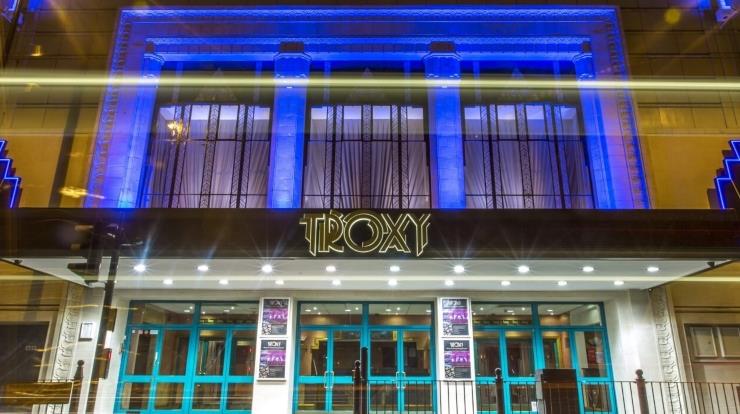
 Podcasts
PodcastsCatch the latest PR news & updates with PRovoke Media's PR Podcasts. Lifting the lid on key industry stories & trends, join our listeners of PR podcasts today.
 Videos
VideosLatest video interviews and campaigns from PRovoke Media, previously known as the Holmes Report.
Long-form journalism that analyzes the issues, challenges and opportunities facing the business and practice of PR.
 Profiles & Interviews
Profiles & InterviewsExplore PR profiles and interviews with leaders from the marketing and PR worlds.
 Crisis Review
Crisis ReviewPR Crisis & Business Crisis review. PRovoke Media's annual analysis of the top reputation crises to rock the corporate sector. Read on here.
 Coronavirus
CoronavirusPRovoke Media's coverage of the Covid-19 crisis, focusing on corporate communication, public affairs & PR industry fallout.
 Trend Forecasts
Trend ForecastsPRovoke Media's PR Trends round up. PRovoke Media's annual forecast of PR trends and news that will impact the PR world in the year ahead...
 Social & Digital
Social & DigitalDedicated to exploring the new frontiers of PR as it dives deeper into social media, content and analytics.
 Technology
TechnologyOur coverage of key technology PR trends and challenges from around the world of digital communications.
 Consumer
ConsumerFrom brand marketing to conscious consumerism, coverage of key marketing and PR trends worldwide.
 Employee Engagement
Employee EngagementPRovoke Media's coverage, analysis and news around the rapidly-shifting area of employee engagement and internal communications.
 Sports Marketing
Sports Marketing Sports PR news, diversity & inclusion trends, views and analysis from PRovoke Media. Subscribe today for the very latest in the world of sports communications.
 Global PR Agency Rankings
Global PR Agency RankingsPRovoke Media's definitive global benchmark of global PR agency size and growth.
Enter PRovoke Media's 2024 Global 250 Agency Ranking and/or our Agencies of the Year competitions now.
 Agencies of the Year
Agencies of the YearPRovoke Media's annual selections for PR Agencies of the Year, across all of the world's major markets.
 Innovator 25
Innovator 25PRovoke Media profiles marcomms innovators from across North America, EMEA and Asia-Pac.
 Creativity in PR
Creativity in PRIn-depth annual research into the PR industry's efforts to raise creative standards.
 Asia-Pacific Communication Index
Asia-Pacific Communication IndexAPACD/Ruder Finn annual study of Asia-Pacific in-house communications professionals.
 SABRE Awards
SABRE AwardsThe world's biggest PR awards programme, dedicated to benchmarking the best PR work from across the globe.
 PRovokeSummit Global
PRovokeSummit GlobalThe biggest PR conference of the year, a high-level forum designed to address the critical issues that matter most.
 PRovoke Media Regional Series
PRovoke Media Regional SeriesA global network of conferences that explore the innovation and disruption that is redefining public relations.
 Agencies of the Year
Agencies of the YearUnrivalled insight into the world's best PR agencies, across specialist and geographic categories.
 Roundtables
RoundtablesOur Roundtables bring together in-house comms leaders with PR firms to examine the future of communications.
 Agency Playbook
Agency PlaybookThe PR industry’s most comprehensive listing of firms from every region and specialty
.jpg) All Jobs
All JobsFind the latest global PR and communications jobs from PRovoke Media. From internships to account executives or directors. See all our PR jobs here.
PRovoke Media's editorial series published in collaboration with partners.

The 2019 Asia-Pacific PR Consultancies of the Year are the result of an exhaustive research process involving more than 125 submissions and meetings with the best PR firms across the region.
Consultancy of the Year winners are announced and honoured at the 2019 Asia-Pacific SABRE Awards, which take place on 12 September in Singapore. Analysis of all Finalists and Winners can be accessed via the navigation menu to the right or below:
Weber Shandwick may lack the drama of some of its rivals, but its relative lack of internal turbulence has proven immensely beneficial in a region where many other networks continue to suffer from self-inflicted wounds. After a slower than expected year in 2017, the firm resumed its impressive progress in 2018, up 8% to around $120m. A cohesive regional strategy means that Weber Shandwick has added considerable geographic breadth and specialist depth across the region, much of which is the by-product of a stable leadership team that is overseen by chairman Tim Sutton and CEO Baxter Jolly, supported by operations chair Tyler Kim in Korea; regional vice chair and creativity/innovation lead Darren Burns in Singapore; client experience chair Vanessa Ho in Singapore; and chief strategy officer Ian Rumsby in Australia.
The firm’s local market leadership, overseeing some 900 people across 10 markets, is similarly stable and also reflects Weber’s preference for homegrown leaders, including David Liu in China, Albert Shu in Hong Kong, Valerie Pinto in India, and Takeo Nishitani in Japan. There were significant new appointments in India (Nikhil Dey as vice chair), Australia ( Helen Graney as MD), Korea (Seiku Hong as Juny Lee as GMs) and Indonesia (Herry Cahyono as GM) while Burns’ shift to the regional vice chair role allowed Lydia Lee to step up to China president.
Growth was led by by its biggest operation in China (+8%), Hong Kong (another year of defying gravity with 8% growth), India (double-digit organic expansion), Japan (+5%), Korea (+3%), Singapore (+2%), and Indonesia, Malaysia and Thailand (all growing at a double-digit clip). Much of that is driven by a top 20 client base that accounted for more than half of the firm’s growth revenue, including 18 accounts which bring in in revenue of more than $1m. There was significant new business from JFOODO, Walton, GSK, Novartis, University of Chicago, Oppo, Tepco, Samsung, Hanwha, Coca-Cola, Dropbox, Riot Games, Wrigley Extra and Kimberly Clark, while anchor clients include GM, Nestle, IBM, Nike, Merck, Facebook, Swatch, Mastercard, Amazon and Turkish Airlines, reflecting Weber Shandwick’s strength across corporate/PA (which accounts for 33% of regional revenue), consumer, technology, digital and healthcare. At a practice level, growth was led by consumer and healthcare, while the firm’s move into sports marketing is also starting to reap dividends.
But the numbers don’t tell the full story of Weber Shandwick’s impressive performance in Asia-Pacific. Jolly and Burns have overseen a fundamental expansion of the firm’s integrated capabilities across all of its markets and practices, with a specific focus on establishing a more credible creative offering, which is overseen by ECD Ali Grayeli, and an considerable expanded analytics practice under Emmanuel Caisse. After several years of sustained investment, Weber Shandwick’s digital operation now stands as one of the region’s strongest, with 220 executives in its digital studio teams across Asia-Pacific, and a further 25 focusing on data and analytics. Indeed, the firm’s data and analytics capabilities have seen a pronounced improvement since the 2017 acquisition of data consultancy Bomoda, which brought specific expertise into Chinese social media platforms and has helped to drive several new product offerings, including proprietary solutions in natural language processing of ecommerce behaviours, customer journey analysis and reputation analysis. This has helped underpin new integrated business from the likes of ExxonMobil, Hotels.com, Turkish Airlines and Shiseido, along with digital content assignments for such companies as Hanwha Group and Samsung Electronics, and lead generation work for many of its technology clients.
The work, unsurprisingly, reflects this level of innovation, with Weber Shandwick scoring 15 SABRE nominations — including impressive campaigns for Roche, Hanhwa Group, Eisai Korea, Hotels.com, Air New Zealand, Fitness First, Airbnb, Mastercard and Vivo. The firm is also taking on increasing ‘pure creative’ assignments from such clients as ExxonMobil and Hotels.com, reflecting how it has been able to marry creativity and data to notable effect. And it has been rolling out its United Minds consulting unit (from Sweden) across the region, giving it a distinct edge in such areas as employee engagement and cultural transformation. — AS
The reverse takeover of Burson-Marsteller by Cohn & Wolfe has not been without challenges in Asia-Pacific. Yet, for the most part, the complementary nature of the two operations has ensured a relatively undramatic process, with Asia-Pacific president Matt Stafford bringing particular focus to bear on employee engagement, training and policies to ensure that staff do not feel left out. The helped cut the voluntary turnover rate down to 27% in 2019 from 48% in 2017, with overall headcount growing to 1,100 from 900 at the time of the merger. And BCW’s other numbers also impress too — growth of 8% in 2018 and 12% forecast for 2019, with the agency on track to crack the $100m barrier by the end of this year. India forms the firm’s largest market, with more than 450 people across the Genesis, 6 Degrees and PPR brands, while Greater China numbers more than 350 from offices in Beijing, Shanghai, Guangzhou and Hong Kong.
And BCW’s biggest sub-regions have led growth over the past 18 months, with India up 12% and Greater China up 11%. Australia also expanded by 21%, although these performances were offset by more mediocre returns in Singapore, Japan and Indonesia. Regardless, a vibrant new business operation (inherited largely from Cohn & Wolfe) helps to explain BCW’s performance, with major assignments landed from Ali Group, Ping An, Skyworth, Air China, Lenovo, Converse, Bloomberg, Singapore’s National Youth Council, Under Armour and Nespresso. They join an existing client roster that features Huawei, Qualcomm, Oppo, PMI, Ford, Dell, Tencent, Lenzing and Continental.
Stafford has reshuffled his leadership team to noticeable effect, naming five regional practice leaders and hiring new office heads in Shanghai and Singapore following the departures of Tiffany Bai and Shawn Balakrishnan, respectively. The moves give BCW an impressive array of depth across corporate, consumer, public affairs and technology, bolstered by fast-growing digital capabilities in India and China. That also helps to explain the vibrancy of the firm’s work, which landed an eye-catching 28 SABRE finalists, including standout campaigns for Air China, GSK, Punjab National Bank, Honor, Oppo, Converse and BMS. — AS
While Edelman’s Asia-Pacific revenues declined 2.8% to $104.2 in 2018, the agency returned to growth for its 2019 fiscal year which ends June 30, expanding topline by 1.6% to suggest that a turnaround is underway. It will be led by Edelman’s third regional leader in as many years, after global practices and sectors chair Stephen Kehoe replaced Jesse Lin as Asia-Pacific CEO. Kehoe takes charge of a network that continues to encompass considerable geographic breadth (1,400 employees across 11 markets) along with service depth in such areas as digital, research, corporate, brand, technology and creative. In line with the agency’s broader transformation project, Edelman Asia-Pacific has restructured its operations to noticeable effect in recent years, which has not been without challenges — senior departures have included regional vice-chairs Iain Twine and Rupen Desai, although the agency has welcomed new talent in the shape of chief media officer Fon Mathuros; Michelle Hutton, who returned to Australia from London to oversee regional growth; and several digital and strategy hires across the region.
Edelman pins much of the blame for its anaemic financial performance on the loss of the mammoth Tata account in India —remove that from the equation and the firm grew 5% for its fiscal year, including 14% in India. There were also encouraging performances from China (+13%), Malaysia (+25%) and Australia (+6%), although these were offset by less impressive returns in Southeast Asia and North Asia. In Indonesia, which has seen particular turbulence, the agency has “come together” with Zeno, in a bid to marry its traditional corporate strength with its sister agency’s digital capabilities.
Meanwhile, Edelman’s attempts to elevate its digital and creative capabilities continue to pay dividends, particularly when it comes its data and analytics operations, which remains one of the sharpest in the region. That is demonstrated best by the global predictive intelligence centre (EPIC) it has formed in conjunction with Singapore’s Economic Development Board, which followed up the impressive Shell Emotion Tracking campaign by winning a string of assignments from HP, Turner, EndowUs Insights and two healthcare clients.
In addition, (and despite the Tata reverse) Edelman has also focused on broadening its remit beyond MNC clients to encompass such “local heroes” as Singtel, DD, Korea Tourism, Flipkart, Tencent, AirAsia and Mitsubishi Heavy Industries. There was also new business from R+F, RB, DiDi, BPEA, Danone, OPLMA, Jewel at Changi Airport, Walmart, BlackRock and SK Telecom, joining a client roster that already features Adobe, Adidas, GSK, Amazon, HP, California Almonds, Mars, Samsung, PayPal, Unilever, Shell, AstraZeneca and Nissan.
The network’s has stepped up its already-strong commitment to professional development and employee culture, while thought leadership (from the Trust Barometer to the Cultural Connections initiative) remains sharper than most. And, of course, Edelman’s work increasingly demonstrates the benefits of its long-term investment in digital and creative, including standout, SABRE-nominated campaigns for Audible, PayPal, Oatly, LinkedIn, Mitsubishi Aircraft Corporation, Kellogg and Starbucks. — AS
FleishmanHillard celebrates its 25th anniversary in Asia-Pacific this year, now encompassing 16 owned offices across the region after launching in Beijing in 1994. Today, the firm’s presence includes two additional brands (BlueCurrent and Vox) across Japan, Greater China, Korea, India, Indonesia, Thailand, Philippines and Australia — under the long-term leadership of regional president Lynne Anne Davis, who has also added Asia-Pacific leadership duties for parent entity Omnicom PR Group (OPRG) in 2019. While 2018 growth was flat, FH is currently tracking at more than 3% growth in 2019, accounting for the exit of its Singapore operation, which was merged with Ketchum and Porter-Novelli in that market to create OPRG Singapore.
Significantly, Davis oversees a leadership team that features local nationals overseeing almost all of its offices, and also reflects an equal male/female split among not only its top 20 leaders, but its senior partners and SVPs too. Other long-term leaders include Japan president Shin Tanaka, Greater China head Rachel Catanach, India president Yusuf Hatia, Korea chief Yvonne Park and Vox Japan president Nojiri Akihiro, who have all been in place for longer than 12 years, while global crisis chair Brian West has held his role since 2012. A spate of promotions saw new leadership appointed in Hong Kong, Shanghai and Beijing, while there has also been a slew of senior hires, including new leaders in Manila, Jakarta and Delhi.
Growth was led by China (up 10% including +40% in Shanghai), Philippines (+36%), India (+14%), and Vox Japan (+11%), while 2019 has seen encouraging returns from Southeast Asia and Korea. Greater China remains the single largest driver of Asia-Pacific revenue, while Fleishman’s three Tokyo brands make Japan its largest market in the region in revenue terms. There was new business from Fitibit, J&J, RB and the Norwegian Seafood Council on a regional basis, GM in China, Corning, the Government of HK, Lenovo Hong Kong, AmorePacific in Korea and Seagate in China. Meanwhile, FleishmanHillard’s Greater China offices have seen particular success when it comes to helping China brands go global, supporting such domestic heavyweights as Bosideng, TCL, Alibaba, Lenovo, BoC, ICBC, Tencent, Taikang Life Insurance and Mengniu. Indeed, FH has seen particular success from expanding its business with Asian-based corporates, which also include Nipsea, Ananda Development, J-Eurus, Innovation Network of Japan, Oriental Land, HiteJinro Holdings, Kansai Airports, Tourism Authority of Thailand, Lee Kum Kee, Hyundai Motor and China Mobile. The firm’s top 10 clients include Bose, Caesars Entertainment, Corning, Japan Office of the PM, Philips, P&G and Visa.
Sector growth is being led by Fleishman’s advertising capabilities, which benefit from increasing investment in digital and creative (particularly in Greater China and Japan), and work for such clients as Aflac, Ajinomoto, Kao, NTT Solmare, Riceforce and Built Heritage. And there is also depth across technology, healthcare, CPG and financial services — reflecting FH’s consumer, corporate, issues/crisis, public affairs and digital capabilities. This is also reflected by the firm’s work, which includes notable campaigns for Nike, Fitbit, Corning Gorilla Glass and ClearBlue. — AS
The PR suffix might be gone (to the chagrin of some of the firm’s senior leaders) but Ogilvy continues to serve as the benchmark by which other regional public relations networks are measured in Asia-Pacific, with estimated fee income at around $180m following another year of upper single-digit growth (+9%) last year. Coming from Ogilvy’s base, those numbers they deserve even greater respect — the WPP agency’s Asia-Pacific revenue overtook its US earnings some years ago and its ‘PR & influence’ domain, as must we now call it, functions as the largest profit contributor to Ogilvy group in many markets. Indeed, while Ogilvy’s ‘refounding’ makes much of breaking down barriers between silos, it is easy to view Asia-Pacific as the template for this thinking, given the number of Ogilvy PR executives that now lead the broader group in such markets as Beijing (Selina Teng), Guangzhou (Frangelica Liang), Vietnam (Dieucam Nguyen) and Australia (Kieran Moore).
While there were a couple of notable departures — Debby Cheung in Beijing and EeRong Cheng in Singapore — veteran leader Scott Kronick oversees a largely stable senior team. Ogilvy’s PR unit now has more than 1,000 staff working across 26 offices in 15 countries, giving it the largest regional footprint of the MNC firms, led by particular strength in Greater China, Australia, Japan, the Philippines and Southeast Asia. There has been particular attention paid to Ogilvy PR’s integrated offering, which includes a formidable digital and social media practice (number 400 executives), along with strategic depth in such areas as public sector and public affairs, technology, consumer marketing and financial communications. It is worth noting that, after 35 years in the region, Ogilvy’s PR operation continues to either be the largest, or within the top three, in a slew of markets, including China, Australia, Hong Kong, Singapore, Taiwan, the Philippines, Vietnam, Indonesia and Malaysia.
Growth was fuelled by strong perfomances in China, Australia, Singapore, Vietnam and the Philippines, including new business from such clients as Gojek, Abu Dhabi Special Olympic World Games, PTT Oil & Retail, Beijing 2022 Winter Olympics, Taya Group, TripAdvisor, Thailand’s Government Lottery Office, Shiseido, Changi Airport, World Food India, OCBC Bank and Kung Fu Panda Spectacular. They join an existing client roster that features Intel, Huawei, Tencent, Nestle, Unilever, Amazon, Dell, Yum, HSBC, Epson, UPS, Suntory, J&J, Mondelez and Ford.
The high-profile ‘refounding’ effort, meanwhile, only underlines the strength of Ogilvy’s integrated offer, bolstered by a strong commitment training and development, and a commitment to thought leadership that reflects the firm’s view that PR remains central, rather than peripheral to Ogilvy Asia-Pacific. And, as usual, the work remains impressive, with Ogilvy scoring no fewer than 35 SABRE nominations, including cutting-edge campaigns for LCY Education Foundation, Nestle, Intel, Gordon Thomas Honeywell, Castrol, Jollibee, and the Early Childhood Development Agency — from a much broader range of markets than most rivals, including Taiwan, China, India, Philippines, Singapore and Australia. — AS
A high-level forum designed for senior practitioners to address the critical issues facing the profession.

















Intelligence and insight from across the PR world.
About PRovoke Media Contact Us Privacy & Cookie PolicyWe feel that the views of the reader are as important as the views of the writer. Please contact us at [email protected]
Signup For Our Newsletter Media Kits/Editorial Calendar Jobs Postings A-Z News Sitemap© Holmes Report LLC 2024